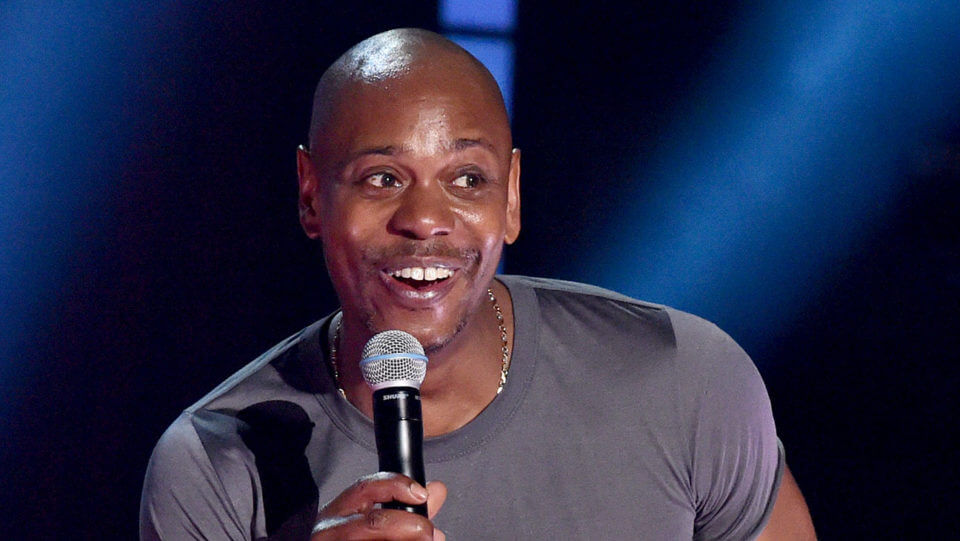
“Comedy is one of the world’s oldest arts because it appeals to our common, imperfect humanity: we all have flaws, and the best thing we can do about such a tragedy is to laugh about it.”
You can call Dave Chappelle “cruel,” “egocentric,” or even accuse of him of having “an unmistakable ring of homophobia,” but at least you can’t call him “late for controversy.” This time the controversy surrounds his latest Netflix special Sticks & Stones, which was released last month.
The “Top Critics” on the review aggregator Rotten Tomatoes, most of whom had enjoyed Chappelle’s earlier work, condemned his latest material, which they accuse of having dangerous, real-life consequences.
What are these consequences of Chappelle’s takes on Michael Jackson’s accusers, Louis C.K., Kevin Hart, and “Alphabet People?” In the minds of the Rotten Tomatoes reviewers, these bits play a hand in preserving existing power structures and oppressing those who are habitually victimized, including women and those in the LGBT community. Chappelle, his critics claim, is guilty of empowering rich and influential men through his material. But “material” is the key word here. To his critics, it does not matter what the punchlines of his Leaving Neverland (the HBO documentary that alleges Michael Jackson molested young boys) bits are; rather, the problem is that he used anything to do with these allegations towards a comedic end. Supposedly, this leads to Chappelle, at best, trivializing sexual assault—and, at worst, insulting its victims.
With how edgy comedy has become (particularly when it comes to some aspects of meme culture), it can be easy to lose sight of the line between comedy and insult, or, as they taught us in school, when people are “laughing with us” or “laughing at us.” Although the line that divides the two can sometimes be thin, the difference between their impacts is enormous; laughter lifts people up, while derision drags them down.
These effects are amplified by professional comedians, who are paid simply because they’re the best at making others forget their troubles, even for just an hour. This goes double for Dave Chappelle, whom many, including myself, consider to be one of the greatest comedians of all time.
Comedy, in all of its forms, has always been, by necessity, boundary-pushing. This is, in part, to avoid stale jokes about airline food but also because it is one of the most effective modes of socio-political change. Pointing out that something is laughably illogical is perhaps the best way of conveying that things need to change. Also, unlike other forms of criticism, which can have the effect of making one feel bad about themselves, a well-aimed joke allows one to instead laugh about their mistakes, making real change much more likely.
Have you wondered why comedy is funnier when you watch it with friends or in person? It’s because in this great big world we live in, filled with differences and idiosyncrasies, seeing other people react in kind to that which we find hysterical is wonderfully unifying. Comedy is funny because we can relate to it—and through it, we can relate to one another.
As a result, “protecting” a group of people from jokes does precisely the opposite of what its well-intentioned supporters want. Instead, doing so cuts off millions of people from taking part in one of the most effective unifiers to ever exist: laughing together. This rhetorical quarantine has the effect of making the groups who are “off-limits” seem foreign and different, when in actuality, they’re very similar to everyone else.
Admittedly, there is such a thing as jokes being in “poor taste.” But it’s important to note that even though a particular joke may be in poor taste, it is still, at its core, a joke. An insult, at the end of the day, is intended to be hurtful, while a joke is not. An insult, on the other hand—as opposed to bringing people together—demonizes small differences and establishes further division. With all of this having been said, we can now return to the person on trial: Mr. David Chappelle.
Does it matter that Dave Chappelle joked about the topics he did? Not one bit.
What matters is that Dave Chappelle didn’t take his material—which was often about other people—and reduce them to the subhuman. His jokes didn’t, for example, make trans people out to be bad or laughable, like some critics errantly thought. They achieved precisely the opposite: he established that trans people are human. Just like the rest of us, they have problems they need to deal with as they go about their daily lives, and all Chappelle tried to do was show the bright, funnier side of theirs.
In short, the butt of Dave Chappelle’s jokes are not the person but, rather, the problems they face. This helps, in a way, to make their life experiences relatable to everyone else. Comedy is one of the world’s oldest arts because it appeals to our common, imperfect humanity: we all have flaws, and the best thing we can do about such a tragedy is to laugh about it.
As Dave Chappelle puts it near the end of Sticks & Stones, he laughs and makes jokes about people because “he sees [himself] in [them].” Perhaps, we too should learn to follow Chappelle’s lead and laugh a bit more about ourselves too.
Matthew Pinna is a student at the University of Chicago.












I’m so glad you enjoyed my review of Dave’s thing on Rotten Tomatoes. Triggered much, snowflake? The goal of comedy isn’t to offend or hurt an audience. That’s the goal of a maniac. The goal of a comedian is to make folks laugh and think. Dave did neither.
Excellent article that changed my perspective!